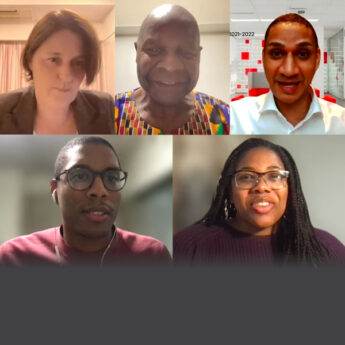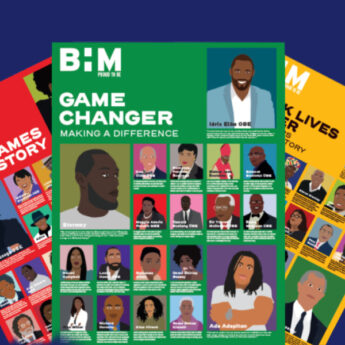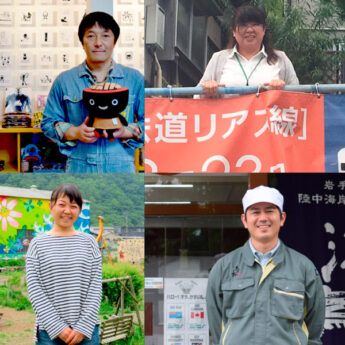People with certain disabilities—physical, mental or intellectual—are often an overlooked and under-hired sector of the talent pool. In Japan, individuals with disabilities increasingly are being absorbed into mainstream society, education and employment.
The government’s strategies to revitalise Japan include promoting the employment of persons with disabilities. On 1 April, a Ministry of Health and Welfare law came into force requiring that, at firms in Japan with 50 or more employees, those with disabilities must account for at least 2% of the staff. Firms with 200 employees or more that do not meet this requirement are penalised.
To date, the factors that have motivated firms to employ disabled individuals have included a focus on fulfilling quotas, thus placing employees with disabilities into limiting roles that do not foster their abilities.
Hisako Kaneko, chief diversity officer of AXA Life Insurance Co., Ltd., says her firm is very eager to include people with disabilities in the workforce as it would make the workplace more inclusive for all employees, regardless of whether they have disabilities.
“The concept we are trying to promote is ‘not charity, but chance’”, Kaneko explained.
Her comments were made on the occasion of the British Chamber of Commerce in Japan’s “Diversity Beyond Gender: People with Disabilities” event, at the Shangri-La Hotel, Tokyo on 28 March. Suzanne Price, representative director of Price Global and the winner of the 2012 British Business Award for Entrepreneur of the Year, moderated the session.
At present, there are 7mn registered disabled people in Japan—6% of the country’s total population. But, rather than just focusing on the employment of disabled people, AXA Life Insurance wants stakeholders to know what they are doing in terms of overall diversity, Kaneko explained.
“We want to become a company of choice”, she added.
Meanwhile, GlaxoSmithKline K.K. (GSK), which has a staff of 3,700 people at its Japan branch, applies a philosophy of respecting others. It tries to include every aspect of diversity in its workforce, according to Yukari Yomo, the healthcare firm’s vice-president of human resources.
Ways are being sought to make the most of diversity in order to strengthen the firm.
“In the past, very few individuals with disabilities went on to further education in Japan. However, this has slowly been changing and more disabled people are now attending university”.
Because those with disabilities generally are not well qualified academically, they find it hard to get employment at larger firms. And there are few, if any, disabled among Japan’s top management elite.
So now, Yomo believes, the benefits of employing people with disabilities need to be promoted to educational organisations.
Putting their heart where their mouth is, GSK has established initiatives to help people with disabilities, such as their Orange Internship programme.
Fast Retailing Co., Ltd, the fourth largest clothing retailer worldwide and holding company for seven fashion brands including Uniqlo Co., Ltd. and G.U. Co., Ltd., has recently expanded to focus not only on consumer satisfaction, but also on employee satisfaction.
According to Toshiyuki Ueki, Fast Retailing’s director of general administration and employee satisfaction, the firm has been pursuing disability diversity since 2001, and 97% of Uniqlo shops nationwide now employ people with disabilities.
“At Uniqlo, those with disabilities represent about 6% of our staff—which means at least one disabled person per regular shop and two for larger stores”, Ueki explained.
The firm has a total of 60,000 employees, of whom 1,041 have a challenge of one form or another: for 70% it is intellectual; for 15% it is physical; while for the remainder it is mental issues.
In Japan, those with disabilities generally struggle to play a role in mainstream society because the school system and other social institutions segregate these individuals from the population. However, Ueki believes that people with disabilities are now beginning to be accepted more readily than in the past.
“At Fast Retailing, we are certainly accustomed to working with those with disabilities. Society needs to focus on people’s talents and how we can include these individuals in the workplace, regardless of disability”, he explained.
The firm’s store managers work closely with disabled employees. This often provides managers with a degree of personal development, thus benefitting both parties, Ueki pointed out.
“Our store staff have hands-on experience working with disabled people. This is hugely beneficial for them. We have also found that, because of this, store staff are better able to look after customers with disabilities, and are interacting with a more diverse group of people”, he said.
GSK tries to accept people with all disabilities, particularly those living with mental illnesses. The firm, in collaboration with a special school for the disabled, has created roles for such individuals in the firm’s canteen.
“One year of experience at GSK in our internship programme means a lot to disabled people and their education”, said Yomo. GSK also provides mentorship and follow-up sessions for disabled employees.
“We need to improve our understanding of their disabilities for the benefit of our other employees”, she added.
AXA Life Insurance is the winner of the 2011 Toyo Keizai Diversity Management Award for the strategic approach the firm’s management took in promoting diversity and inclusion.
In recognition that its customers have different needs, the firm’s marketing department recently created a product brochure that uses a universal font. This makes letters much easier to read for everyone, including those with impaired vision. In acknowledgement of the opinions of the firm’s deaf community, the department also added subtitles to the TV commercials that are displayed on the firm’s intranet and website.
“Inclusion is not easy to achieve. To monitor our inclusiveness, we conduct a firm-wide diversity survey once a year. In the most recent survey, we asked employees if employment of people with disabilities would bring benefits to AXA.
“Almost 80% of respondents indicated that they believe it is beneficial to employ people with disabilities. In addition, we have found that the closer our employees work with people with disabilities, the more they believe in the benefits of inclusion.
“The assumption and preconception that individuals with disabilities can’t do many things is being challenged. We must change our way of thinking if we are to have a successful diversity inclusion programme”, she said.
GSK took part in a six-month project, which required that they look at the types of jobs people with disabilities are doing in the firm, and consider whether their facilities are really user-friendly. The results were featured in an in-house newsletter.
“Through this project, our employees have increased their awareness of people with disabilities within the firm. However, this is an ongoing project that we need to continue pursuing”, Yomo said.
“We need to raise awareness and change the preconceptions that people might have about those with disabilities”, she added.
The impact on employees of working with disabled people is great, Ueki pointed out. Some of the employees at Fast Retailing have become motivated to learn new methods of communication.
“There is a hearing impaired colleague in my department, and their presence has positively impacted the way in which my colleagues and I communicate in general. Those with hearing disabilities need to look at the speaker’s face while they are talking, in order to read their lips when sign language is not an option. The speaker has to enunciate their words to be understood. This certainly helps in communication in general, and my staff and I have started to acquire new skills—transferable skills—through working with people with disabilities”.





